100+ Easy Business Terms Every Entrepreneur Should Know
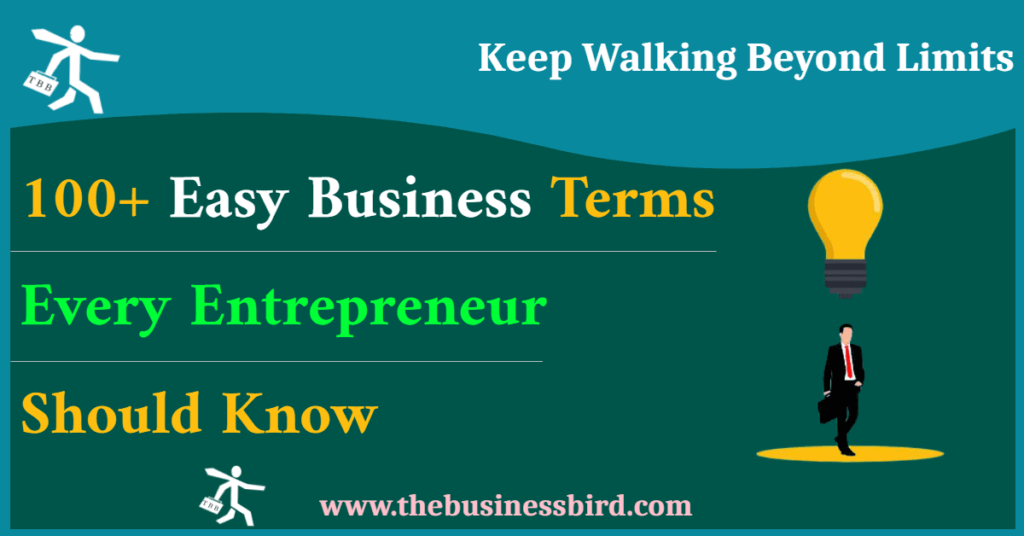
In this post, we have carefully put together a list of key business terms every entrepreneur should know. To facilitate your learning journey, we have categorized the terms alphabetically.
This structure ensures a smooth absorption of knowledge, enabling you to apply these terms to your ventures effortlessly.
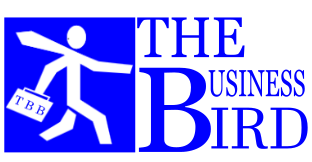
Welcome to our community
Each definition is followed by a thought-provoking question to trigger your creative mind. Let’s get started business birdies, take your time to digest this post. You can bookmark it for easy reference in the future.
Business Terms Definition
List Of Business Terms
A — Business Terms
Let’s start by exploring key business terms that begin with the letter A.
1. Accounting
It is the systematic process of recording, summarizing, and analyzing financial transactions of a business.
How can sound accounting practices help you make informed financial decisions?
2. Assets
Assets are resources owned by a business, including cash, inventory, property, and equipment.
How can you strategically manage your assets to optimize business performance?
B — Business Terms
Let’s now explore key business terms that start with the letter B.
1. Branding
It is the process of establishing a distinct identity and perception for your business in the minds of your target audience.
How can effective branding enhance your business’s reputation and visibility?
2. Budget
It is a detailed financial plan outlining projected income and expenses for a specific period.
How can creating and adhering to a budget ensure financial stability and growth?
3. Business Plan
It is a comprehensive document outlining your business goals, strategies, target market, competition, and financial projections.
Have you developed a solid business plan to guide your entrepreneurial journey?
C — Business Terms
Let’s now explore key business terms that start with the letter C.
1. Cash Flow
Cash flow is the movement of money into and out of your business, indicating its financial health and liquidity.
How can monitoring cash flow help you manage expenses and seize growth opportunities?
2. Customer Acquisition Cost (CAC)
Customer acquisition cost is the cost incurred to acquire a new customer, including marketing, sales, and operational expenses.
How can calculating CAC guide your customer acquisition strategies?
D — Business Terms
Let’s now explore key business terms that start with the letter D.
1. Debt Financing
Debt financing is a way to raise capital by borrowing funds from lenders, such as banks or investors.
What factors should you consider when deciding between debt and equity financing?
2. Demographics
It is statistical data about a population’s characteristics, including age, gender, income, and education.
How can understanding demographics help you tailor your products and marketing efforts?
3. Digital Marketing
Digital marketing involves promoting your products or services using online channels such as social media, email, and search engines.
How can a robust digital marketing strategy expand your reach and customer base?
F — Business Terms
Let’s now explore key business terms that start with the letter F.
1. Freelancer
A freelancer is an individual who offers services to clients on a project-by-project basis, often working independently.
How can leveraging freelancers enhance your business’s flexibility and expertise?
2. Franchise
It is a business model where an entrepreneur buys the rights to operate a proven business concept from a parent company.
What considerations should you keep in mind before investing in a franchise?
3. Funding
The financial resources obtained to support business operations and growth can be through equity investment, loans, or grants.
How can securing funding fuel your entrepreneurial aspirations?
G — Business Terms
Let’s now explore key business terms that start with the letter G.
1. Growth Hacking
Growth hacking is the process of rapidly experimenting with marketing strategies to achieve rapid business growth.
How can a growth hacking mindset drive innovation and customer acquisition?
I — Business Terms
Let’s now explore key business terms that start with the letter I.
1. Intellectual Property (IP)
Intellectual property refers to intangible assets created by a business, such as patents, trademarks, copyrights, and trade secrets.
How can protecting your intellectual property safeguard your unique ideas and creations?
2. Invoice
An invoice is a document detailing products or services provided and their corresponding costs sent to clients for payment.
How can effective invoicing ensure timely payments and healthy cash flow?
J — Business Terms
Let’s now explore key business terms that start with the letter J.
1. Joint Venture
A joint venture is a partnership between two or more businesses to collaborate on a specific project or venture, sharing risks and rewards.
How can joint ventures expand your reach and resources?
K — Business Terms
Let’s now explore key business terms that start with the letter K.
1. Key Performance Indicator (KPI)
These are quantifiable metrics used to measure the performance and success of specific business objectives.
How can tracking KPIs guide your decision-making and strategic planning?
2. Key Stakeholders
Key stakeholders are individuals or groups who have a vested interest in the success of your business, such as customers, employees, investors, and partners.
How can understanding and prioritizing key stakeholders enhance your decision-making and collaboration?
3. Knowledge Management
Knowledge management is the systematic process of capturing, organizing, and sharing a business’s collective knowledge and expertise.
How can effective knowledge management enhance innovation and problem-solving?
L — Business Terms
Let’s now explore key business terms that start with the letter L.
1. Lean Startup
A lean startup is a methodology focused on launching products quickly, testing assumptions, and adapting based on customer feedback.
How can the lean startup approach minimize risks and maximize innovation?
2. Leadership
Leadership is the ability to guide and influence a team to achieve common goals, fostering a positive and productive work environment.
How can cultivating effective leadership enhance your business’s culture and outcomes?
3. Landing Page
A landing page is a standalone web page designed to capture leads or prompt a specific action used in marketing campaigns.
How can optimizing your landing pages boost conversion rates and customer engagement?
4. Leadership Style
Leadership style is the unique approach an entrepreneur adopts to lead and influence their team, which ranges from autocratic to transformational.
How can aligning your leadership style with your team’s needs drive productivity and morale?
M — Business Terms
Let’s now explore key business terms that start with the letter M.
1. Market Research
Market research is the systematic gathering and analysis of data to understand your target market, competition, and industry trends.
How can market research inform your product development and marketing strategies?
2. Mission Statement
A mission statement is a concise declaration of a business’s purpose, values, and overarching goals.
How can a compelling mission statement guide your business’s direction and resonate with stakeholders?
N — Business Terms
Let’s now explore key business terms that start with the letter N.
1. Networking
Networking is the process of building and nurturing relationships with other professionals, entrepreneurs, and industry peers.
How can strategic networking expand your knowledge base and open doors to new opportunities?
2. Niche Market
A niche market is a specialized segment of the market that caters to a specific group of customers with unique needs.
How can identifying and targeting a niche market differentiate your business and foster customer loyalty?
O — Business Terms
Let’s now explore key business terms that start with the letter O.
1. Outsourcing
Outsourcing involves delegating specific tasks or services to external contractors or service providers.
How can outsourcing streamline your operations, reduce costs, and allow you to focus on core business activities?
2. Overhead costs
Overhead costs are the ongoing operating expenses a business incurs, such as rent, utilities, and salaries, regardless of its level of production.
How can managing overhead costs contribute to your business’s financial sustainability?
P — Business Terms
Let’s delve into key business terms that commence with the letter P.
1. Pivot
Pivoting is a strategic change in a business’s direction or product offering in response to changing market conditions or customer feedback.
How can a well-executed pivot position your business for sustainable growth?
2. Profit Margin
Profit margin is the percentage of revenue that remains as profit after deducting all costs and expenses.
How can monitoring and optimizing your profit margins enhance your financial stability and growth?
3. Patent
A patent is a legal protection granted to inventors for their unique inventions, preventing others from using, making, or selling the patented product or process.
How can securing patents safeguard your innovative ideas and creations?
4. Product Development
Product development is the creating, designing, and refining of a new product to meet customer needs and market demands.
How can a structured product development process yield competitive and appealing offerings?
5. Public Relations (PR)
Public relations involves managing and cultivating a positive image for a business through media coverage, events, and strategic communication.
How can effective PR efforts enhance your brand’s reputation and credibility?
Q — Business Terms
Let’s delve into key business terms that commence with the letter Q.
1. Quality Control
These are processes and standards put in place to ensure the consistent quality of products or services delivered to customers.
How can rigorous quality control practices elevate your customer satisfaction and loyalty?
2. Quality Assurance
These are processes and systems implemented to ensure that products or services consistently meet predefined quality standards.
How can rigorous quality assurance enhance customer satisfaction and loyalty?
3. Quantitative Data
Quantitative data is numerical data that can be measured and quantified, such as sales figures, revenue, and customer counts.
How can analyzing quantitative data inform your business decisions and strategies?
4. Quick Ratio
It is a financial metric that assesses a business’s ability to cover short-term obligations with its most liquid assets.
How can monitoring your quick ratio aid in managing your business’s liquidity and financial health?
5. Qualified Lead
A qualified lead is a potential customer who has demonstrated a genuine interest in your product or service and meets specific criteria, indicating a higher likelihood of conversion.
How can nurturing qualified leads improve your sales conversion rates?
6. Query
A query is a specific search or request for information that is often used in the context of online searches or database inquiries.
How can refining your queries lead to more accurate and relevant information retrieval?
7. Quiet Period
It is a predetermined timeframe during which a company refrains from making significant announcements or releasing information that could affect its stock price.
How can understanding quiet periods impact your communication strategy?
8. Quorum
A quorum is a minimum number of members required to be present for a meeting or decision-making process to be valid.
How can ensuring a quorum influence the effectiveness of your business meetings?
9. QuickBooks
It is a popular accounting software used by entrepreneurs and small businesses to manage financial transactions, invoicing, and budgeting.
How can leveraging QuickBooks simplify your financial management processes?
10. Quantitative Analysis
It is a systematic approach to examining and interpreting numerical data to identify trends, patterns, and insights that inform decision-making.
How can incorporating quantitative analysis enhance the accuracy of your strategic choices?
R — Business Terms
Let’s unveil key business terms that start with the letter R.
1. Return on Investment (ROI)
It is a metric used to measure the profitability of an investment calculated by dividing the net profit by the initial investment cost.
How can analyzing ROI guide your decision-making on resource allocation and business initiatives?
2. Revenue
Revenue is the total income generated by a business from its operations and sales before any deductions.
How can maximizing revenue contribute to your business’s growth and financial stability?
3. Risk Management
Risk management involves identifying, assessing, and mitigating potential risks that could impact a business’s operations, finances, or reputation.
How can effective risk management safeguard your business against unexpected challenges?
4. Return Policy
It is a set of guidelines and conditions that dictate how products can be returned or exchanged by customers.
How can a customer-friendly return policy enhance customer satisfaction and loyalty?
5. Recurring Revenue
Recurring revenue is income generated regularly from ongoing sales or subscription-based services.
How can incorporating recurring revenue models enhance your business’s predictability and long-term success?
6. ROI (Return on Investment)
Return on investment is a metric used to measure the profitability of an investment and is calculated by dividing the net profit by the initial investment cost.
How can analyzing ROI guide your decision-making on resource allocation and business initiatives?
7. Run Rate
The run rate estimates a business’s annual performance based on its current financial results and trends.
How can calculating run rates provide insights into your business’s growth trajectory?
8. Risk Appetite
It is the level of risk a business is willing to accept in pursuit of its objectives and growth.
How can aligning your risk appetite with your business goals lead to more confident decision-making?
9. Retargeting
Retargeting is a digital marketing strategy which involves displaying targeted ads to users who have previously interacted with your website or content.
How can retargeting campaigns boost brand awareness and conversions?
10. Recruitment
It involves attracting, evaluating, and selecting qualified candidates to fill job positions within a business.
How can effective recruitment strategies lead to building a talented and dedicated team?
11. Regulatory Compliance
Regulatory compliance involves adhering to laws, regulations, and industry standards that govern a business’s operations and practices.
How can maintaining regulatory compliance protect your business’s reputation and legal standing?
S — Business Terms
Let’s uncover key business terms that commence with the letter S.
1. Sales Funnel
A sales funnel is the visual representation of the customer journey from awareness to conversion, often consisting of stages like awareness, consideration, and purchase.
How can optimizing your sales funnel enhance customer acquisition and retention?
2. SWOT Analysis
It is a strategic planning tool that assesses a business’s Strengths, Weaknesses, Opportunities, and Threats to inform decision-making.
How can conducting a SWOT analysis guide your strategic planning and risk management?
3. Scalability
Scalability is the ability of a business to handle growth and expansion without sacrificing performance or quality.
How can designing a scalable business model facilitate your ability to seize new opportunities?
4. Stakeholder
Stakeholders are individuals, groups, or entities that have a vested interest in the success and outcomes of a business, such as customers, employees, investors, and suppliers.
How can prioritizing stakeholder needs enhance your business’s reputation and sustainability?
5. Solopreneur
A solopreneur is an entrepreneur who runs and operates a business as a one-person operation, often managing all aspects of the business themselves.
How can embracing the solopreneur journey lead to flexibility and self-reliance?
6. Segmentation
Segmentation involves dividing a target market into distinct groups based on shared characteristics, preferences, or behaviours.
How can effective segmentation refine your marketing efforts and customer targeting?
7. Social Proof
Social proof is evidence of positive feedback, reviews, or endorsements from customers that validate the credibility and quality of a business.
How can leveraging social proof influence customer trust and purchasing decisions?
8. Sales Forecast
The sales forecast is an estimation of future sales based on historical data, market trends, and business projections.
How can accurate sales forecasts guide inventory management and resource allocation?
9. SEO (Search Engine Optimization)
Search engine optimization involves optimizing a website’s content, structure, and design to improve its visibility in search engine results.
How can mastering SEO strategies enhance your online presence and attract organic traffic?
10. Supply Chain
A supply chain is an interconnected network of suppliers, manufacturers, distributors, and retailers that work together to deliver products or services to consumers.
How can optimizing your supply chain lead to cost savings and operational efficiency?
11. Sales Quota
Sales quotas are predetermined sales or performance targets that individuals or teams are expected to achieve within a specific timeframe.
How can setting and tracking quotas motivate your team and drive results?
T — Business Terms
Let’s delve into key business terms that start with the letter T.
1. Target Audience
A target audience is a specific group of individuals most likely to be interested in and benefit from your products or services.
How can understanding your target audience enhance your marketing efforts and customer engagement?
2. Time Management
Time management involves effectively allocating and prioritizing time to complete tasks and achieve goals.
How can mastering time management strategies optimize your productivity and work-life balance?
3. Trademark
A trademark is a legally registered symbol, word, or phrase that distinguishes your brand’s products or services from competitors.
How can trademarking protect your brand’s identity and prevent unauthorized use?
4. Terms of Service (ToS)
A term of service is a legal agreement outlining the rules, obligations, and conditions that users must abide by when using a website, app, or service.
How can transparent ToS enhance user trust and mitigate potential disputes?
5. Target Market
A target market is a specific segment of the broader market that a business aims to reach and serve with its products or services.
How can tailoring your offerings to your target market amplify your customer base and revenue?
6. Total Addressable Market (TAM)
It is the total potential market demand for a specific product or service within a given industry or geography.
How can analyzing your TAM guide your growth strategy and market expansion?
7. Thought Leadership
It involves positioning yourself as an expert and authority in your industry through sharing valuable insights, expertise, and innovative ideas.
How can thought leadership establish your credibility and attract loyal followers?
8. Turnkey Solution
It is a fully packaged and ready-to-use product or service that requires minimal effort from the buyer to implement.
How can offering turnkey solutions streamline customer adoption and satisfaction?
9. Testimonial
A testimonial is a positive statement or review from a satisfied customer that showcases the benefits and quality of your products or services.
How can leveraging testimonials strengthen your brand’s reputation and customer trust?
10. Trade Show
A trade show is an event where businesses showcase their products or services to potential customers, partners, and industry professionals.
How can participating in trade shows elevate your brand visibility and generate leads?
U — Business Terms
Let’s unveil key business terms that start with the letter U.
1. Upselling
Upselling involves encouraging customers to purchase higher-priced or additional products or services to increase their order value.
How can upselling enhance your revenue and customer satisfaction?
2. User Experience (UX)
It is the overall interaction and satisfaction users have while engaging with your website, app, or product.
How can optimizing UX enhance customer retention and engagement?
3. Unique Selling Proposition (USP)
A unique selling proposition is the distinctive quality, feature, or benefit that sets your products or services apart from competitors.
How can defining your USP strengthen your brand positioning and customer loyalty?
V — Business Terms
Let’s unveil key business terms that start with the letter V.
1. Viral Marketing
Viral marketing involves creating content or campaigns that spread rapidly through online sharing, generating widespread exposure and engagement.
How can viral marketing amplify your brand’s reach and impact?
2. Value Proposition
The unique benefits, solutions, or outcomes your products or services offer to customers in exchange for their time, money, or commitment. How can crafting a compelling value proposition resonate with your target audience?
3. Venture Capital (VC)
Venture capital is funding provided by external investors to startups and early-stage businesses in exchange for equity ownership.
How can securing venture capital fuel your business growth and innovation?
W — Business Terms
Let’s explore key business terms that start with the letter W.
1. Working Capital
It is the financial resources available to cover day-to-day operational expenses and short-term liabilities.
How can managing working capital optimize your cash flow and business stability?
2. Wireframe
A wireframe is a visual representation or blueprint that outlines the structure and layout of a website, app, or interface.
How can creating wireframes streamline the development and design process?
3. Webinar
A webinar is a live or recorded online presentation, workshop, or seminar that educates, engages, and connects with a targeted audience.
How can hosting webinars boost your thought leadership and audience engagement?
Z — Business Terms
Let’s conclude our journey with key business terms that start with the letter Z.
1. Zero-Based Budgeting
Zero-based budgeting is a budgeting approach where each expense must be justified from scratch rather than based on previous budget cycles.
How can implementing zero-based budgeting lead to cost optimization and resource allocation?
Final Thoughts
In the vast world of business, knowing the basics is like having a secret code to unlock success. From making your money work for you (ROI) to getting noticed online (SEO), it’s all here. These are the words that make things happen.
Imagine them as your business buddies, guiding you through the ups and downs.
It’s not about just knowing the words; it’s about using them to improve your business game. Cheers to speaking the language of victory!
Keep Walking Beyond Limits
To your Business and Entrepreneurial success,
– Clevis AKA THE BUSINESS BIRD
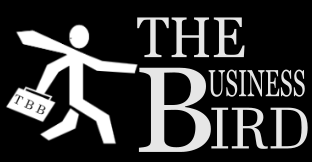
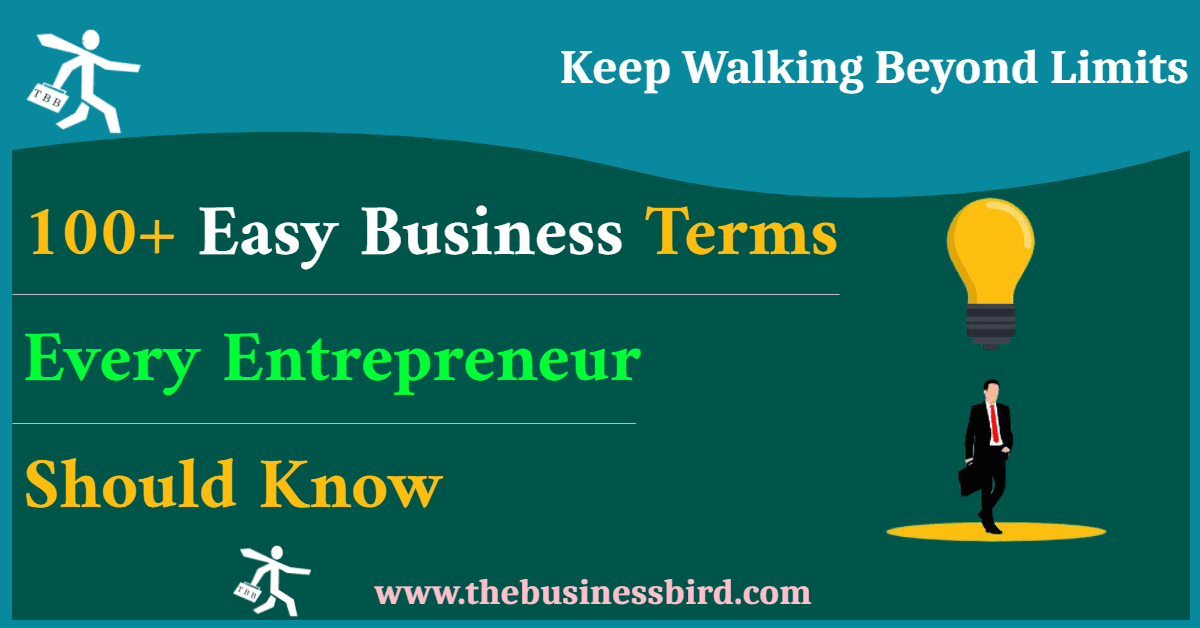
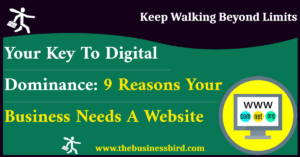


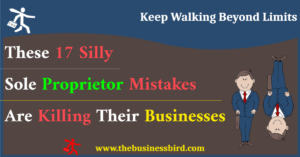


Leave a Reply